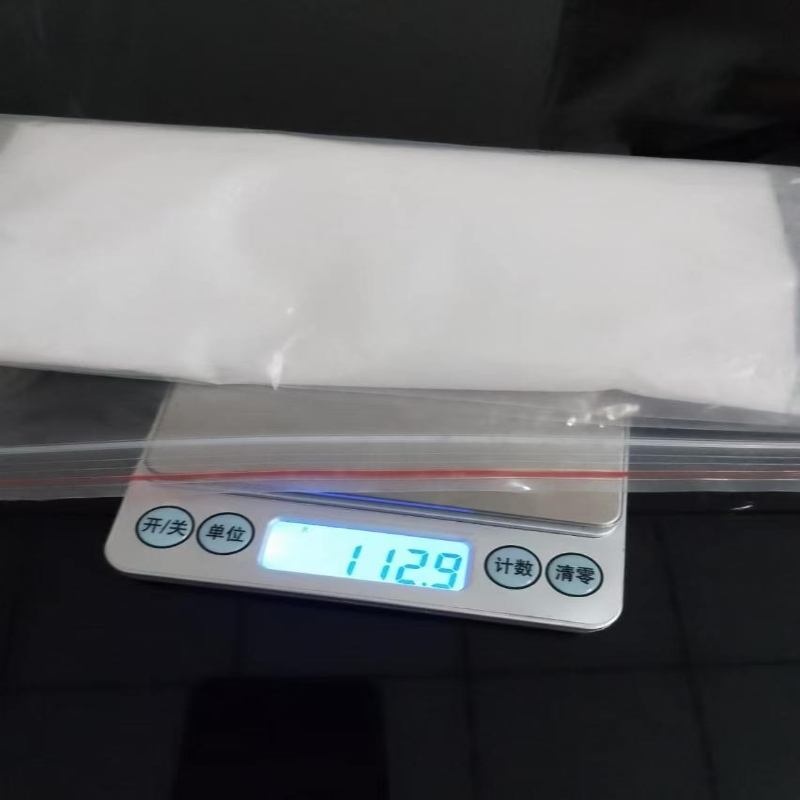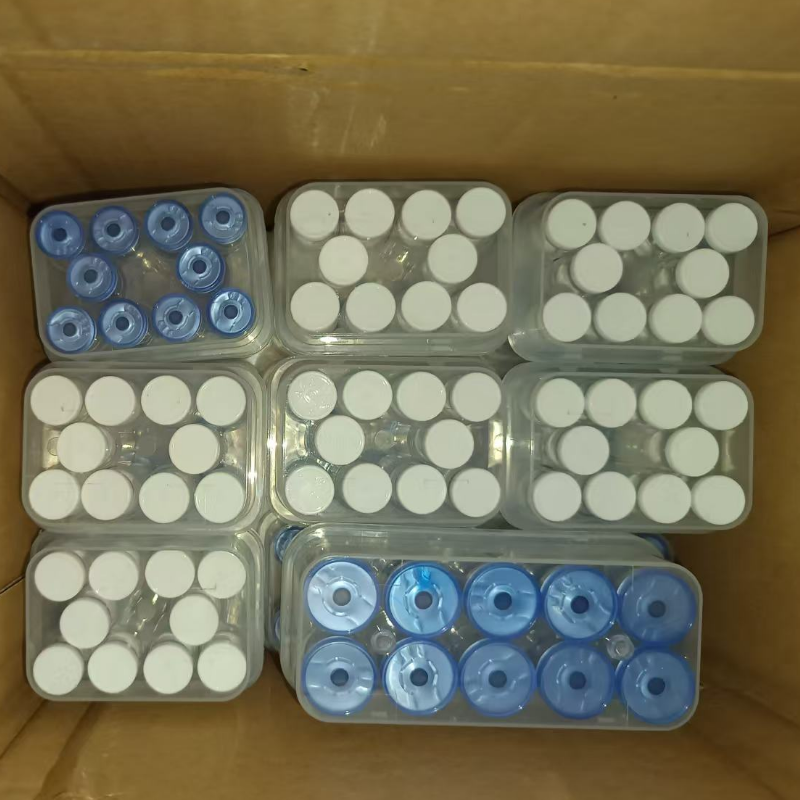-
Categories
-
Pharmaceutical Intermediates
-
Active Pharmaceutical Ingredients
-
Food Additives
- Industrial Coatings
- Agrochemicals
- Dyes and Pigments
- Surfactant
- Flavors and Fragrances
- Chemical Reagents
- Catalyst and Auxiliary
- Natural Products
- Inorganic Chemistry
-
Organic Chemistry
-
Biochemical Engineering
- Analytical Chemistry
-
Cosmetic Ingredient
- Water Treatment Chemical
-
Pharmaceutical Intermediates
Promotion
ECHEMI Mall
Wholesale
Weekly Price
Exhibition
News
-
Trade Service
*For medical professional reading reference only
Brigatinib officially entered clinical application in China, helping clinical patients to fully benefit
The final results of the ALTA-1L study, a head-to-head comparison of the efficacy and safety of brigatinib and crizotinib, showed that the primary endpoint was median progression-free survival (mPFS) assessed by the blinded independent review committee (BIRC).
Figure 1.
Figure 2.
In addition to the durable benefit seen with brigatinib in ALTA-1L, the J-ALTA study continued the success of ALTA-1L in first-line therapy in the Japanese population
The ALTA-1L study demonstrated long-term survival with first-line brigatinib in patients with baseline brain metastases
a Presence of brain metastases at baseline according to investigator assessment Figure 5.
In the J-ALTA study, the efficacy of brigatinib on brain metastases from ALK-positive NSCLC was again verified
In the ALTA-1L study [1] , the median time to health status/quality of life (GHS/QOL) deterioration was 26.
7 months in the brigatinib-treated group and 8.
3 months in the crizotinib-treated group (HR=0.
69, P=0.
047), suggesting that brigatinib can significantly improve overall HRQOL and delay the time to quality of life decline.
Compared with crizotinib, brigatinib significantly delayed the time of deterioration in multiple dimensions, Such as fatigue, GI-related symptoms (nausea and vomiting, decreased appetite, constipation), and emotional and social functioning (p < 0.
05)
.
In terms of safety, the most common adverse reactions of brigatinib in the ALTA-1L study were gastrointestinal reactions, increased serum creatine phosphokinase (CPK), cough, and increased transaminases (Figure 7)
.
The safety data of first-line treatment were consistent with other previously reported studies, no new adverse events were seen, and it was well tolerated
.
EORTC QLQ-C30: European Cancer Research and Treatment Quality of Life Questionnaire - Core 30 Figure 7.
ALTA-1L: EORTC QLQ-C30 Score [1]
J-ALTA Study
First-line brigatinib was also well tolerated in the J-ALTA study population, and no patients experienced treatment-related adverse reactions requiring discontinuation (Figure 8).
Interstitial pneumonia (ILD)/pneumonitis was reported in 4 (12.
5%) patients, and most cases of ILD/pneumonitis improved after discontinuation of brigatinib or no steroid therapy [3]
.
Figure 8.
J-ALTA: Summary of the final safety analysis ALK-positive NSCLC has approached the management of "chronic disease", and long-term survival of patients is no longer an extravagant talk .
In the actual clinical treatment selection, doctors need to comprehensively consider many factors: efficacy, adverse reactions, and the patient's economic affordability, so as to formulate a personalized first-line treatment plan for the patient .
The current NCCN guidelines [4] recommended first-line drugs for ALK-positive non-small cell lung cancer include: crizotinib, ceritinib, alectinib, brigatinib, and lorlatinib, among which the priority recommended drugs include Brigatinib .
Aiming at the characteristics of ALK-positive advanced NSCLC patients who have relatively young onset and are prone to brain metastasis, brigatinib, as a member of ALK TKI, not only brings the advantages of longer remission and higher survival time, but also achieves Improve longevity and quality of life at the same time .
With the official clinical application of brigatinib in China, we look forward to its rapid entry into medical insurance, improving drug accessibility and benefiting more patients!References: [1] Camidge DR, Kim HR, Ahn MJ, et al.
Brigatinib versus Crizotinib in Anaplastic Lymphoma Kinase (ALK) Inhibitor-Naive Advanced ALK-Positive Non-Small Cell Lung Cancer: Final Results of the Phase 3 ALTA- 1L Trial.
J Thorac Oncol.
2021;16(12):2091-2108.
[2] D.
Ross Camidge, Hye Ryun Kim, Myung-Ju Ahn, et al.
Association of depth of target lesion response to brigatinib with outcomes in patients with ALK inhibitor-naive ALK+ NSCLC in ALTA-1L.
Journal of Clinical Oncology 2022 40:16_suppl, 9072-9072[3] Pingkuan Zhang, Toru Kumagai, Tatsuya Yoshida, et al.
Brigatinib in Japanese patients (pts) with ALK+ NSCLC : Final results from the phase 2 J-ALTA trial.
J Clin Oncol 40, 2022 (suppl 16; abstr 9075)/2022 ASCO Poster Bd #62[4] NCCN Clinical Practice Guidelines in Oncology-Non-small cell lung cancer, version 1.
[J].
J Natl Compr Canc Netw, 2022.
Approval Number: VV-MEDMAT-72086 Approval Date: August 2022
Statement:
This information is intended to help healthcare professionals better understand the latest developments in related disease areas
.
The content of the information published on this platform does not mean that we agree with its description and opinions, but only provides more information
.
If copyright issues are involved, please contact us, and we will deal with it as soon as possible
.
The information provided in this information is not intended to replace professional medical advice in any way and should not be considered medical advice
.
If such information is used for purposes other than information understanding, this platform, the author and Takeda shall not be held responsible
.
*This article is only used to provide scientific information to medical professionals, and does not represent the views of this platform.
* The medical community strives to be accurate and reliable when the published content is approved, but it does not guarantee the timeliness of the published content, and the cited materials (if any ) makes any promises and guarantees about the accuracy and completeness of the content, and does not assume any responsibility for the outdated content, possible inaccuracy or incompleteness of the cited materials,
etc.
Relevant parties are requested to check separately when adopting or using it as a basis for decision-making
.
↓↓↓ Click "Read the original text" to learn more clinical skills







